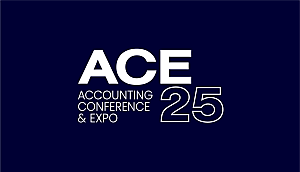This Budget, and the Leader of the Opposition’s Budget Address in Reply, set the scene for the lead-up to the next federal election. Although the latest possible date for a House of Representatives only election is 27 September 2025, this would involve holding two Federal elections in 2025 as the last possible date for a simultaneous half-Senate and House of Representatives election is 24 May 2025. Accordingly, it is expected that the election will be held no later than Saturday 24 May 2025 (if not called earlier). This would likely involve the Federal Budget 2025–26 being rescheduled from its usual home on the second Tuesday in May to sometime in March 2025, or earlier.
Disappointingly, the Budget did not contain even a flicker of a commitment by the Government to commence a conversation on meaningful and holistic tax reform. If not now, then when?
The Budget has forecast a surplus of $9.3 billion for 2024–25, following an unexpected surplus of $22.1 billion for 2022–23. However, a return to deficits ranging from $24.3 billion to $42.8 billion is forecast for the forward estimates period. Our fiscal challenges are symptomatic of an underlying problem: the inability of Australia’s existing tax and superannuation system to adequately support our communities, our businesses and our economy. Almost every Intergenerational Report — Treasury’s own publication that highlights the likely trends and future challenges — highlights that spending to support the needs of our ageing population is expected to increase while tax receipts will remain steady or decrease. This is unsustainable.
The key measures
Stage 3 tax cuts
The inclusion of the Stage 3 personal income tax cuts in the Budget costed in the previously legislated changes. While the public message is that every taxpayer will receive a tax cut from 1 July 2024, only those who actually pay income tax will benefit.
Further, relief will be felt immediately only by those who are subject to PAYG withholding as their first take-home pay after 1 July 2024 will increase due to reduced PAYG withholding. PAYG instalments are subject to an annual 12% GDP uplift so those who pay quarterly instalments will not see the benefits of the tax cuts until they lodge their 2025 tax returns and determine their tax liability. Any overpayment of tax for 2024–25 will result in a refund.
Small business instant asset write-off (IAWO)
The Government announced as part of the Federal Budget 2023–24 that it would temporarily increase the IAWO threshold to $20,000 for the 2023–24 income year. Without this change, the threshold would have reverted to the standard legislated threshold of $1,000 from 1 July 2023. The increased threshold would apply to eligible assets that are first used or installed ready for use by 30 June 2024.
This proposed measure is still not yet law. It is contained in Schedule 1 to the Treasury Laws Amendment (Support for Small Business and Charities and Other Measures) Bill 2023 (the Bill). In March 2024, the Senate amended Schedule 1 to the Bill to temporarily increase the asset threshold from $20,000 to $30,000 and the aggregated turnover threshold from $10 million to $50 million for 2023–24 only. The Bill returned to the House of Representatives (House) for consideration of the Senate amendments, but on 15 May 2024, the House disagreed to the Senate amendments. Its reasoning was explained in these terms:
To prevent any delay in small businesses getting these promised tax benefits as part of Tax Time 2024, the House of Representatives does not agree to these amendments.
The Bill returned to the Senate for reconsideration of its amendments and, on 16 May 2024, the Senate insisted on its amendments, so the Bill must again return to the House. This oscillation between the two chambers is greatly concerning as SBE taxpayers have a mere five weeks until the end of the 2023–24 income year yet still do not have certainty on the tax treatment of their depreciating assets for this year.
The 2023–24 measure has now been overlaid with the announcement as part of the Federal Budget 2024–25 that the $20,000 IAWO for SBEs will be extended by 12 months, for eligible depreciating assets first used or installed ready for use by 30 June 2025. Without this change, the threshold reverts to the standard legislated threshold of $1,000 from 1 July 2024. This will be the seventh time since 12 May 2015 that the IAWO threshold has been varied.
While this measure is welcome, we continue to advocate for a permanent increased IAWO for businesses with an aggregated turnover of less than $50 million for assets costing less than $30,000. We need to move away from annually drip-feeding a policy measure that is clearly favoured by both sides of the political divide and businesses. Businesses deserve certainty and stability in the tax system so they can make decisions based on actual law, not pending announcements. Notably, the Leader of the Opposition, the Hon Peter Dutton MP, announced as part of his Budget Address in Reply that a Coalition government would permanently extend the value of assets eligible for the IAWO to $30,000 for small businesses.
Change to indexation of student loans
The Government will reform the formula used to index Higher Education Loan Program (HELP) loans so the indexation rate will be the lower of the consumer price index (CPI) or the wage price index (WPI) in a given year. It means the CPI indexation rate of 7.1% applied on 1 June 2023 would be reduced to the WPI rate of 3.2% and the rate of 4.7% to be applied on 1 June 2024 would be reduced to 4%.
This is proposed to apply to relevant student loans that existed on 1 June 2023 and is expected to wipe $3 billion in student debt. Students who chose to repay their loans in full before 1 June 2023 will not be eligible for the indexation reduction.
That repayments deducted from the take-home pay of an individual with a student loan throughout the year are applied to reduce their loan balance only after indexation is applied remains a conundrum. The difficulty is that the repayment rate cannot be ascertained until the individual’s taxable income is determined, which is after the end of that income year.
CGT and foreign residents
One of the few surprises in this year’s Budget is the proposed changes to the capital gains tax (CGT) implications for foreign residents. Broadly, the Government announced that it would:
- clarify and expand the range of assets on which foreign residents are subject to CGT;
- modify the principal asset test from a point-in-time to a 365-day testing period; and
- require foreign residents disposing of shares and other membership interests worth more than $20 million to notify the ATO before executing the transaction.
The ATO notification process will be required from vendors even if they have self-assessed that their sale is not taxable real property and is not subject to foreign resident CGT withholding.
On hold debts
The Commissioner of Taxation will be empowered to not offset a refund against old tax debts of individuals, small businesses and not-for-profits where the debt was placed on hold before 1 January 2017. This change will enshrine the Commissioner’s current administrative approach in legislation.
Funding for compliance programs
Additional funding will be provided to the ATO to strengthen and extend its tax compliance programs, including the:
- Personal Income Tax Compliance Program;
- ATO Counter Fraud Strategy;
- Shadow Economy Compliance Program; and
- Tax Avoidance Taskforce.
We have long called for the ending of the over-reliance on temporary resources of those responsible for the administration of our system. We would prefer to see a greater proportion of funding being diverted towards resolving issues such as technology limitations, time taken to resolve disputes and more timely guidance of taxation and superannuation legislation rather than for compliance activity.
Silence
The silence on some measures and proposed policies was conspicuous.
Superannuation
Barely a budget in the last 40 years has not contained proposed changes to the superannuation system. Following sweeping changes to superannuation (legislated and proposed) in recent years, including the transfer balance cap, non-arm’s length income and Division 296 tax on superannuation balances over $3 million, the absence of any new measures was a relief.
That said, it was hoped further clarification of the design of the new Payday super regime, announced in last year’s budget and due to commence on 1 July 2026, would have been provided in the Budget. Targeted consultation on this policy continues.
Further, there remains a pressing need to simplify the array of superannuation rates, caps, limits and thresholds to reduce complexity and ensure more consistent indexation. No progress was made on this front.
The ABUMs
Finally, the list of announced but unenacted measures (ABUMs) was, yet again, disappointingly not dealt with in the Budget, other than the Government confirming it will not proceed with a 2019–20 measure to strengthen the ABN system.
Clarity is needed on so many of these measures but the following measures in particular warrant a mention (I wrote about these in this column following last year’s budget):
- Corporate tax residency: announced on 6 October 2020 as part of the Federal Budget 2020–21, these proposed changes were welcomed by industry at the time, yet they have still not progressed.
- Individual tax residency: announced on 11 May 2021 as part of the Federal Budget 2021–22 in response to the Board of Taxation’s recommendations — further consultation is needed to address some undesirable or unfair outcomes.
- Division 7A: this area still needs some work and further consultation is similarly needed to ensure that any changes improve the operation of the provisions without resulting in undesirable or unfair outcomes.
The ABUM issue is broader than the measures themselves. As a matter of system maintenance, the Government really needs to address the systemic issue of this list swelling with every budget, review and election campaign, only to shrink ever so slightly as measures are eventually enacted or abandoned. How can the ABUMs be better managed going forward so greater certainty can be provided to taxpayers and their advisers?
Closing comments
Tax barely featured in this year’s Budget. The absence of details on the few tax measures needed to better understand their impact on taxpayers and tax practitioners at this time is expected. However, while we wait for our questions to be answered regarding law design to give effect to the policy intent and how the various measures will be implemented by the ATO, a more important question is stark: has the budget left the tax system behind?
Our current tax mix, including the overly high reliance on direct income taxes, needs to be thoroughly interrogated and redesigned to ensure that it is fit for purpose — now and into the future. Only once the community understands and supports the need for holistic tax reform, and the Government has the political courage and commitment to drive it with bi-partisan political support, will we see successful reform. Tinkering, knee-jerk reactions and patching problems continue to add to complexity and increase compliance costs. The tax system is creaking under its own weight.
About the Author
Robyn Jacobson is the Senior Advocate at The Tax Institute.
About The Tax Institute
The Tax Institute is the leading forum for the tax community in Australia. Our reach includes membership of over 10,000 tax professionals from commerce and industry, academia, government and public practice and 40,000 Australian business leaders, government employees and students. We are committed to representing our members, shaping the future of the tax profession and continuous improvement of the tax system for the benefit of all, through the advancement of knowledge, member support and advocacy. Read more at taxinstitute.com.au

 Login
Login






